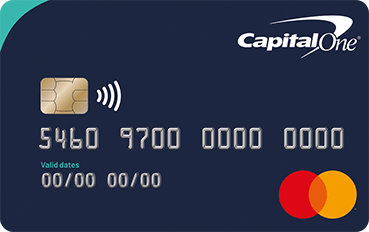Applying for a credit card
Applying for a credit card doesn’t need to be complicated. You can check your eligibility using QuickCheck before you apply, without affecting your credit score.
When you’re looking to get a credit card, the amount of choice can be overwhelming. That’s why at Capital One, we’ve made sure that applying for a card online is as simple as possible. After finishing QuickCheck, our eligibility checker, you’ll get a yes or no straight away. If you’re eligible, you’ll then need to review your offer and decide if you want to submit your credit card application.
How to apply for a credit card with Capital One
1
Check if you’re eligible
Use QuickCheck to find out if you could be accepted2
Review your credit card offer
If you’re accepted, you’ll get an offer that we think would work for you3
Apply for your credit card
Finish up your application if you think it’s the right credit card for youCan I apply for a credit card?
To apply for a credit card from Capital One, you must be aged at least 18 and live in mainland UK (that includes Northern Ireland too). The best way to know if you’ll be accepted is to use an eligibility checker.
Every time you apply for a credit card, a mark appears on your credit file. Making too many applications close together can harm your credit score. And if you get turned down for a card, it can become harder for you to get accepted by other lenders.
When you use QuickCheck, Capital One’s eligibility checker, we’ll give you a yes or no before you apply, so it won’t affect your credit score.
It could also be a good idea to check your credit report before applying. This can help you understand how lenders see you, and areas you could improve on.
Which credit card should I apply for?
Not sure which type of card you need? Or what different types of cards there are? Take some time to weigh up which card could be right for you.
- Balance transfer cards can help you save money by moving an existing card balance onto a new one with a lower interest rate.
- Credit builder credit cards, when used responsibly, are great for people who want to improve their credit score.
Credit builder
Classic credit card

Our most popular card with over 4 million people accepted.
- Suitable for people with bad credit or want to build credit*
- £200 to £1,500 credit limit
- Up to two optional credit increases per year, subject to availability**
Representative example: Assuming a credit limit of £1,200 and an interest rate on purchases of 34.94% p.a. variable, you will receive a 34.9% APR representative variable.
*Your credit limit could improve as long as you pay on time and stay within your balance. Not doing this could harm your credit rating.
**If you use your credit card responsibly you may become eligible for a credit limit increase. But remember, a bigger balance could take longer to pay back and cost more in interest.
Can I apply for a Classic credit card?
You’re more likely to be accepted for a Classic Credit Card if you:
- Have some history of managing credit
- Are on the electoral roll
We’re not likely to accept you if you:
- Have not had credit in the UK before
- Have declared bankruptcy in the past 12 months
0% on balance transfers
Balance Transfer card

Save money by transferring your higher-interest credit card balances
- Credit limit up to £8,000
- 0% on balance transfers for up to 18 months
- Up to 3% transfer fee
- You may be eligible for 0% interest on purchases for 3 months
Representative Example: Assuming a credit limit of £1,200 and an interest rate on purchases of 34.94% p.a. variable, you will receive a 34.9% APR representative variable.
Can I apply for a Balance Transfer credit card?
We’re more likely to accept you if:
- You’ve had credit cards in the past
- You’re aged 21 or over
- You’re a homeowner
- You have annual income of more than £20,000
We’re not likely to accept you if you:
- You’ve missed payments in the past
- You haven’t had credit in the UK before
- You’ve had CCJs or defaults
What details do I need to apply for a credit card online?
When applying for a Capital One credit card online, it’s good to keep the following handy:
- Your current UK address details for the last 2 years
- Your name, date of birth and email address
- Your yearly income before tax
- Your bank account number and sort code (if you’re setting up a Direct Debit)
If you’re applying for a Capital One Balance Transfer card, we’ll also need details of the card you’ll be transferring the balance from.